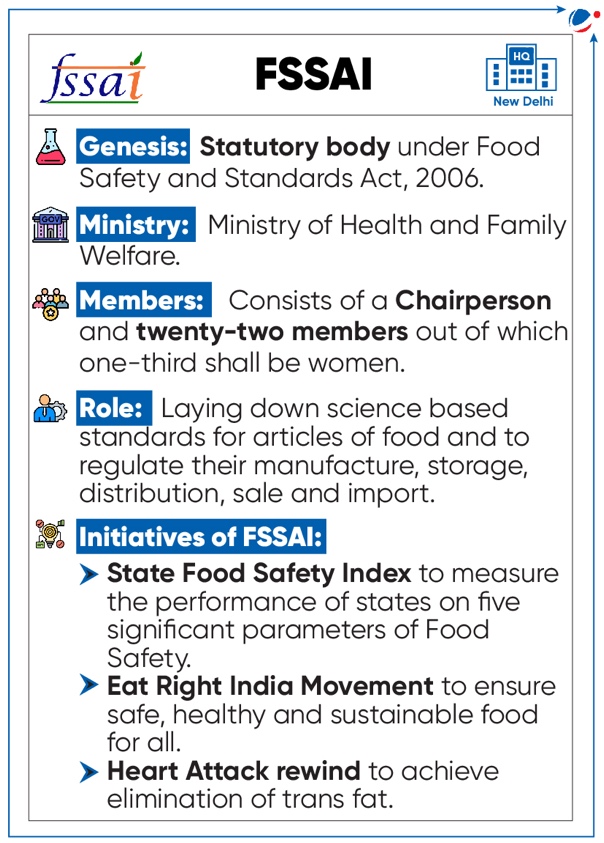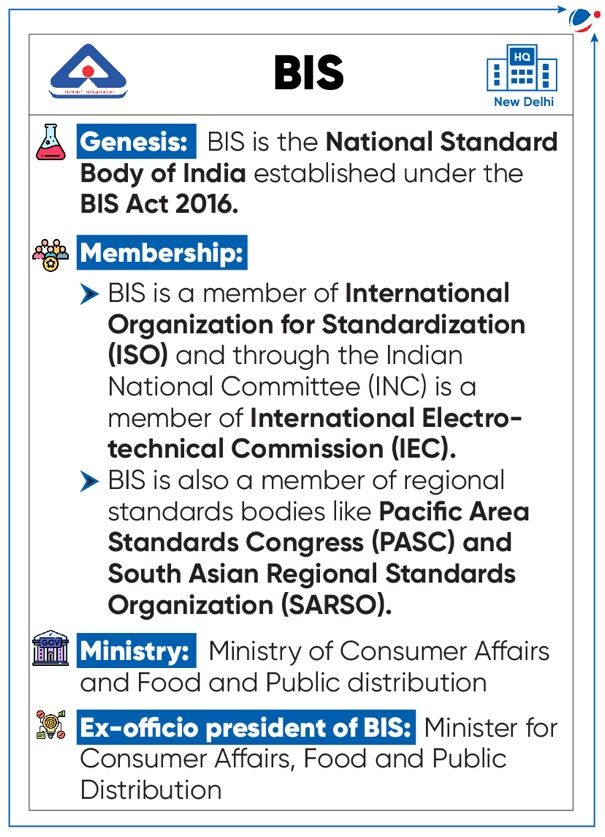Why in the News?
The Food Safety and Standards Authority of India (FSSAI) endorsed multiple amendments geared towards simplifying food safety regulations.

Amendments approved by FSSAI
- Elimination of multiple certifications: Food businesses would not have to go to different authorities for mandatory certification.
- Only FSSAI certification will be mandatorily required for food products.
- Bureau of Indian Standards (BIS) or AGMARK certification will not be required for food products.
- Presently, Food Safety and Standards (Prohibition and Restriction on Sale) Regulations 2011 have prescribed mandatory certification under BIS Act and AGMARK Scheme.
- BIS certification is mandatory for some food products e.g infant formula, packaged drinking water, milk powder etc.
- AGMARK is mandatory for blended edible vegetable oils and fat spreads.

- First comprehensive manual of methods of analysis for ensuring regulatory compliance of food products.
- Expansion of Standards: Like standards of Mead (Honey wine) and Alcoholic Ready-to-drink (RTD) beverages, revision of standards of milk fat products, standards for Haleem etc.
About Food safety regulations in India
- Food Safety and Standards Act, 2006: Overarching regulation on food safety establishing FSSAI as the primary food safety authority.
- Food Safety and Standards Regulations, 2011: Contains labelling requirements and standards for packaged food, permitted food additives, microbiological requirements etc.
- Various FSSAI Food Safety Standards: Developed by Scientific Committee and Scientific Panels, the principal arms of FSSAI in standard development process.
About AGMARK
|



